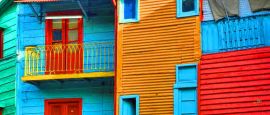Argentina Health Care and Vaccinations
| Title | Special precautions |
|---|---|
| Diphtheria |
Yes |
| Hepatitis A |
Yes |
| Malaria |
Note 3 |
| Rabies |
Note 2 |
| Tetanus |
Sometimes |
| Typhoid |
Yes |
| Yellow Fever |
Note 1 |
Argentina has a well-developed healthcare system, offering public and private healthcare services. Public hospitals provide free emergency care to everyone, including tourists, but they can be crowded, particularly in urban areas. Private healthcare is of high quality, with modern facilities and well-trained medical staff, but treatment costs can be high, so comprehensive travel insurance is strongly recommended.
Pharmacies (farmacias) are widely available; many open 24 hours. Medications are generally accessible, but travellers should bring any regular prescriptions and a basic medical kit, especially if visiting remote areas.
In an emergency, dial 107 for an ambulance. It is also advisable to carry emergency contact numbers and know the location of the nearest medical facilities.
Travel insurance is compulsory for all foreign visitors to Argentina. Travellers must hold a policy that covers medical treatment, emergency assistance and medical evacuation for the full duration of their trip, and may be asked to present proof of this coverage upon arrival.
Tap water in major cities is safe to drink and food hygiene is generally good.
In remote areas of Argentina, including Patagonia, travellers should avoid drinking tap water unless it has been treated or filtered. While some rural areas and mountain regions may have access to natural springs with clean water, it's best to err on the side of caution. Boiling water for at least 1 minute or using water purification tablets are recommended.
Do you have any Feedback about this page?
© 2026 Columbus Travel Media Ltd. All rights reserved. No part of this site may be reproduced without our written permission, click here for information on Columbus Content Solutions.








 You know where
You know where